The seventh seal (Movie): life, death and faith.
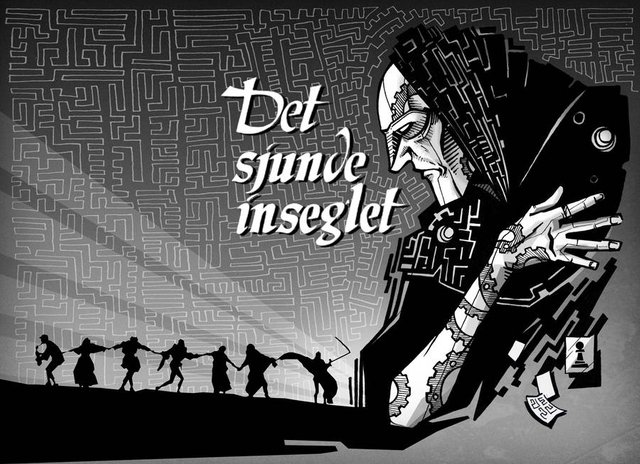
This film deals with several recurring themes in the director's work such as the meaning of life, death, friendship and love. But it mainly talks about God and faith, or the loss of it.
Antonius Block is a knight who, together with his squire, has just returned from the crusades and finds his country plagued by the Black Death. The middle age as a historical period and european inquisition as a scenario, constitute the perfect frame for a film whose main argument is the crisis of faith that the knight is going through.
After ten years of fighting in the Crusades, Block doesn't return with his faith reinforced. On the contrary, doubts torment him. Is it possible that God doesn't exist? It is not, in the case of the gentleman, a crisis of faith like the kind a person can go through today; remember that he is a knight who has just fought in the crusades defending a God he does not believe in anymore. Not only he's lost his faith, but his whole life has lacked of meaning because he has fought for an empty cause. If God doesn't exist, his life has had no purpose.
Full of doubts, his time comes and upon his return to Europe he meets Death. Block then proposes to play a game of chess, claiming to be a better player than Death; Block says he knows Death likes to play chess because he has seen it in the paintings and heard it in the songs. As long as the game is maintained, Antonius will have time to do something meaningful with his life; but if he loses he must go with the dark messenger. Meanwhile, stimulating dialogues are established between the knight and Death on the great questions of life: death and the existence of God. They are undoubtedly the best sequences of the tape and is evident in phrases like:
Why the cruel impossibility of reaching God with the senses?
Why can't I kill God inside me?
I want to understand. I don't want to believe
All of them come from a man who can no longer believe in miracles he can't see, or in those that can't be demonstrated. Simply, he can't continue trusting in a God who is silent before his doubts. He's a man who needs to know, because he doesn't support the idea that now, when his last hour has arrived, he must go to the nothingness. What lies beyond death? Even Death doesn't answer that question. If, when we die, the emptiness awaits us, what is the meaning of having lived trusting in the promise that there would be something more afterwards?
Besides the clear reference in the title of the film to the book of Revelations, other signs are presented that reveal the end of time, a belief of the Middle Ages: they see four suns; the vision of the Virgin Mary next to the child; a woman has given birth to a veal head; they burn a witch at the stake for bringing the plague; and of course, the presence of Death as a character, playing a game of chess against a man, as a symbol of the inevitability of the end: death always wins.
Deep and poetic moments abound in the images as well as in the script, even more than in other of Bergman's movies. The allegories and symbols are so many that it would be necessary to write other posts to analyze them all. If the face of Antonius Block is familiar, it's because Max von Sydow is one of the Swedish actors with the biggest filmography, both in Sweden and in the United States. He may not be immediately remembered as one of the lesser characters of Wild Strawberries, also by Bergman, but he will no doubt be remembered as Oskr's grandfather in Extremely Loud, Incredible Close, as the remembered Father Merrin in The exorcist, or more recently as The Three-eyed Raven in the acclaimed series Game of Thrones. Bibi Anderson and Gunnar Björnstrand collaborate again with Bergman in this film.
Gunnar Fischer is again in charge of photography in this film which earned Bergman the Cinematographic Writers Circle Medals for Best Foreign Film and Best Foreign Director in 1961, in addition to other awards and nominations. Because of the performance of the protagonist, the poetic content of the script and the shots, the profound treatment of topics that are always valid and the way in which the debate between knowledge and faith, emptiness and meaning is presented, I give it 8.5/10 points to this movie that I liked a little more than the others I've seen of Bergman and I recognize, without a doubt, that it's one of those movies that everyone should see.
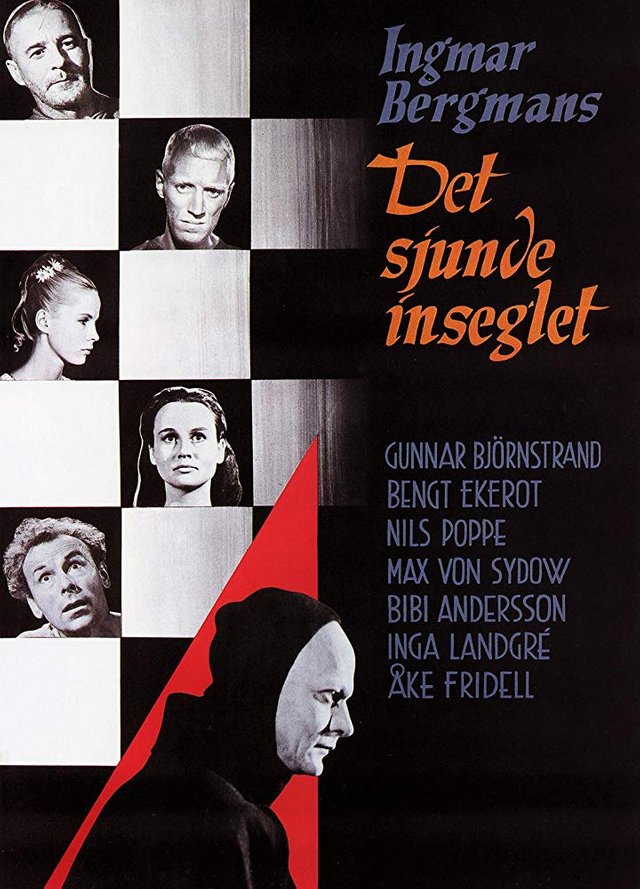
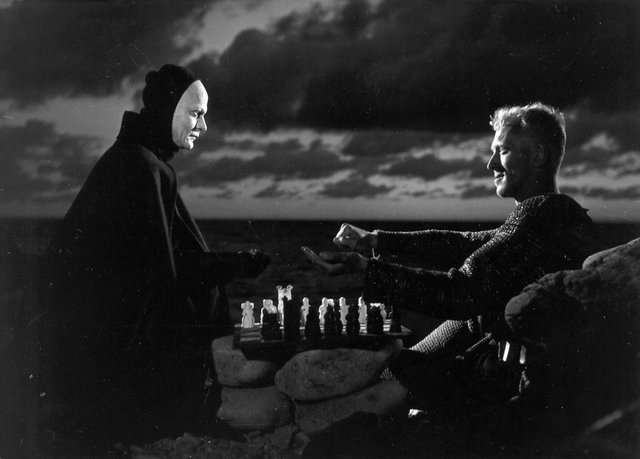
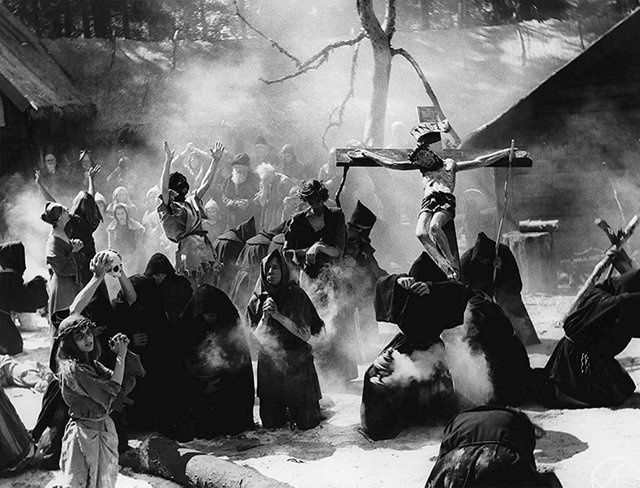
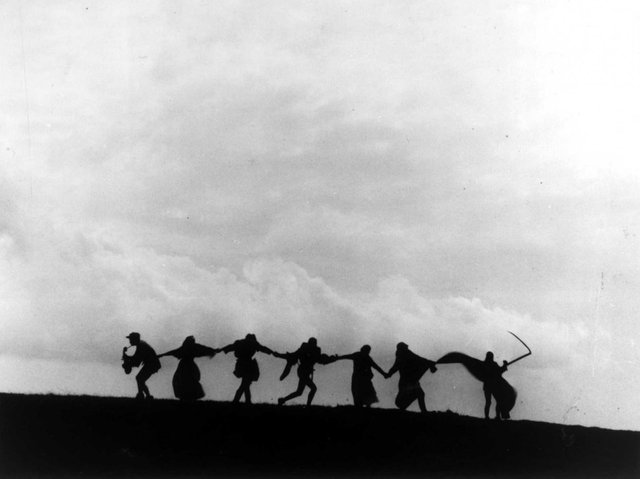
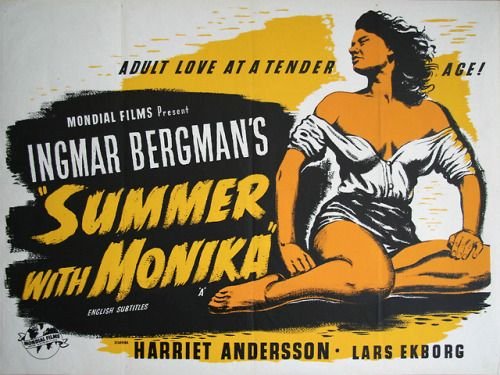
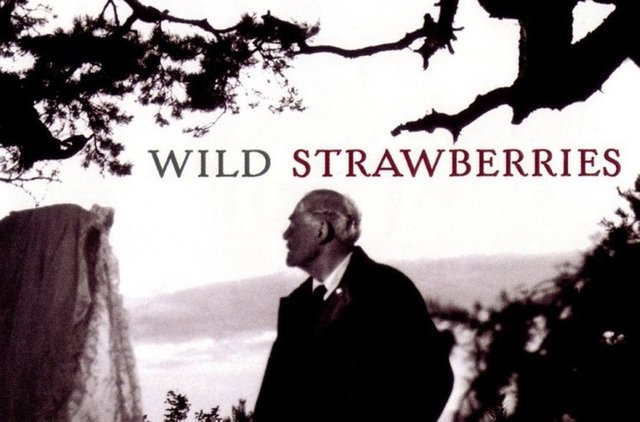

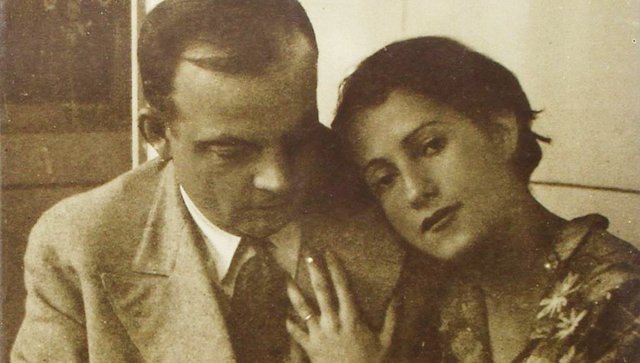
Congratulations! This post has been upvoted from the communal account, @minnowsupport, by cristiancaicedo from the Minnow Support Project. It's a witness project run by aggroed, ausbitbank, teamsteem, someguy123, neoxian, followbtcnews, and netuoso. The goal is to help Steemit grow by supporting Minnows. Please find us at the Peace, Abundance, and Liberty Network (PALnet) Discord Channel. It's a completely public and open space to all members of the Steemit community who voluntarily choose to be there.
If you would like to delegate to the Minnow Support Project you can do so by clicking on the following links: 50SP, 100SP, 250SP, 500SP, 1000SP, 5000SP.
Be sure to leave at least 50SP undelegated on your account.